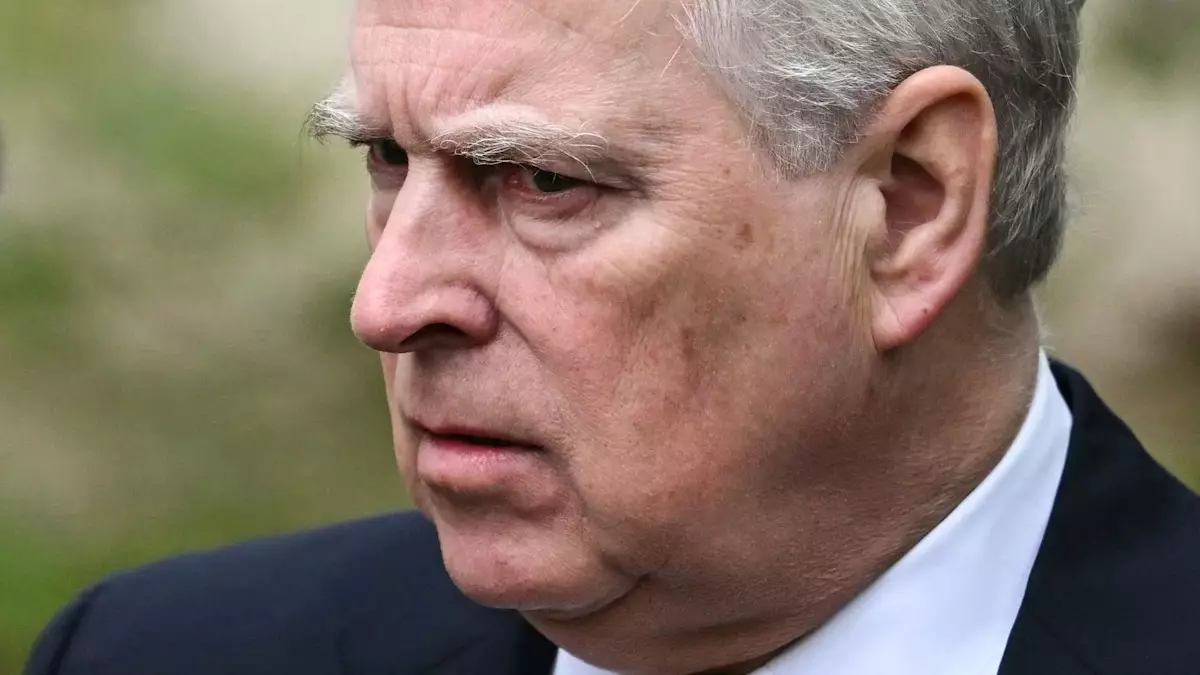In a fascinating yet concerning turn of events, a Chinese businessman known only as H6 has been denied entry into the UK on grounds of national security. Described as a close ally of Prince Andrew, H6’s case has raised pressing questions regarding political influence, foreign ties, and the vulnerability of the UK’s political landscape. The decision not only reflects the government’s scrutiny of external affiliations but also highlights the relationship dynamics that can inadvertently compromise national security interests.
The saga began when the Home Office made the decision in March 2023 to bar H6 from entering the UK. Authorities expressed that H6 allegedly engaged in “covert and deceptive activity” on behalf of the Chinese Communist Party (CCP). The gravity of these allegations was reinforced during H6’s appeal against this barring, during which the Special Immigration Appeals Commission (SIAC) examined the evidence closely. A significant aspect of the case involved a letter from Andrew’s adviser, which highlighted H6’s notable trustworthiness and connections with the Duke.
The letter mentioned H6’s role in Andrew’s 2020 birthday party and suggested his ability to act on behalf of the Duke in negotiations with prospective investors from China. Such revelations raised alarms about the potential implications of this relationship on national security. The relationship between H6 and Prince Andrew is still being parsed, yet it is clear that it has become embroiled in broader geopolitical tensions.
The SIAC upheld the Home Secretary’s decision, asserting that the exclusion of H6 was justified based on the concerns regarding national security. The judges noted the potential for H6’s connections to be utilized for political leverage, emphasizing that the possibility of influence exerted upon Prince Andrew, especially during times of personal vulnerability, posed significant risks. Their ruling underscored the need for precautionary measures in navigating the delicate interface of politics and international relations.
The judges articulated that while H6’s actions might not be overtly malevolent, the very nature of his connections warranted attention. This decision reflects growing anxieties about foreign influence and the complex interconnections that can exist between businesses and politics.
H6’s defense painted a contrasting picture, asserting that he distanced himself from politics and any insinuation of impropriety. His legal team argued that it is practically unavoidable for Chinese nationals engaged in business to circumvent interactions with the CCP, suggesting that this context should temper the allegations against H6. Furthermore, they posited that the letter from Andrew’s adviser must be viewed through the lens of loyalty during a tumultuous time in the Duke’s life, rather than as definitive evidence of unhealthy ties.
H6 expressed sentiments of belonging to the UK, portraying his extensive business interests and settled status as indicators of his commitment to the nation. Despite his entreaties, however, the tribunal determined that the risks associated with his connections outweighed his personal claims.
The case of H6 draws attention to the broader ambiance of suspicion regarding foreign influence within the UK. It exemplifies the precarious balance that must be achieved between fostering international business relationships and safeguarding national integrity against potential political interference. In an increasingly complex world, where alliances can shift rapidly and foreign powers may seek leverage through personal connections, the UK government appears resolute in its commitment to protecting its political apparatus from external manipulation.
As the ruling underlines the significance of risk management in matters that straddle business and diplomacy, it also ignites a dialogue about how personal relationships among influential figures may impact national security.
The barring of H6 serves as a cautionary tale regarding the implications of international relations on domestic politics. It raises critical questions about trust, influence, and the checks and balances needed to navigate the multifaceted world of geopolitics. While H6 has denied any wrongdoing, the case underscores the importance of vigilance in the face of potential threats to the fabric of national security. As this story unfolds, it will be vital to monitor how these dynamics evolve, particularly in relation to high-profile individuals who wield significant power and influence in a globally interconnected environment.

Leave a Reply